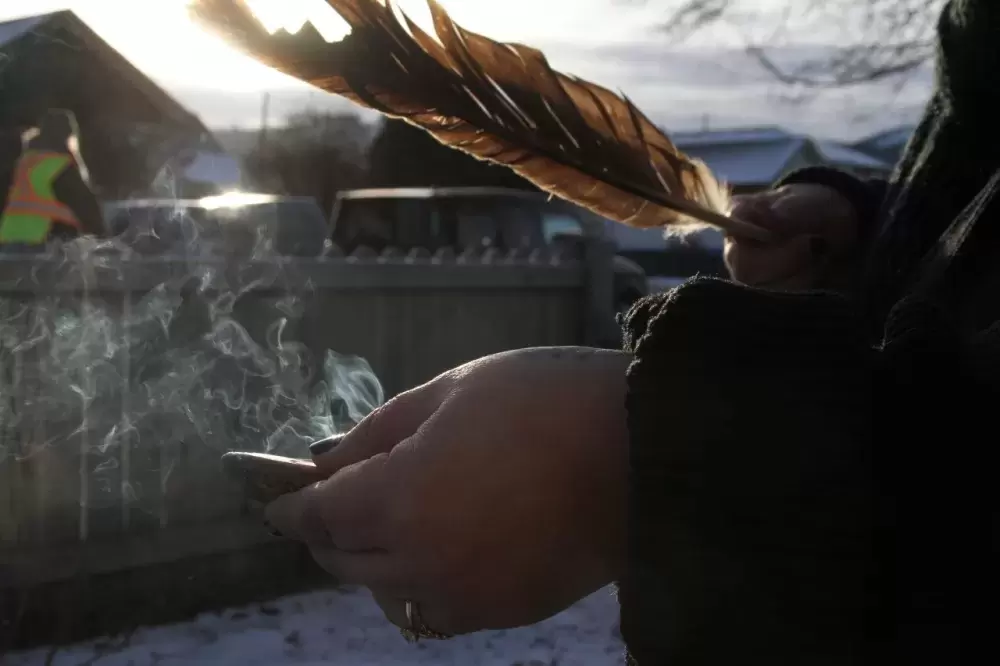The lawyers for Candice Servatius have filed a notice of appeal, seeking a different court decision that favours a Port Alberni mother’s position against smudging and other Indigenous practices in public schools.
Candice Servatius is the Port Alberni mother who brought School District 70 and the Attorney General of British Columbia to court after learning her children witnessed an Indigenous smudging at their school in 2015. She is being represented free of charge by the Calgary-based Justice Centre for Constitutional Freedoms.
The trial was held last November in the B.C. Supreme Court in Nanaimo, where Justice Douglas Thompson listened to testimony from several witnesses over five days.
Over the course of the trial the judge heard from several people present during the smudge demonstration at the school in September 2015. In addition to the smudging, the court heard that the Servatius children witnessed an invited hoop dance performer say a prayer in an Indigenous language over a microphone at a school assembly. That event took place in early 2016.
Concerned about her Christian children being exposed to “the explicitly supernatural and religious nature of the cleansing ritual”, Servatius approached the school to seek assurances that her children be excluded from such events.
Dissatisfied with the outcome of her communications with the school, Servatius brought the matter to court.
In her petition, Servatius sought a court order that would ban smudging along with “religious or spiritual rituals, cleanings, ceremonies and prayer” during mandatory school time throughout the province of British Columbia.
The Nuu-chah-nulth Tribal Council, whose education workers bring Nuu-chah-nulth culture and language into the public schools through education agreements, were added as intervenors in 2018.
The NTC stated that it opposes the cultural prohibition order sought by Servatius that would, in effect, hinder work that the school district and NTC have accomplished so far in bringing Indigenous culture into the schools.
The B.C. Supreme Court ruling came down January 8, 2020. Justice Thompson released his 47-page ruling, which dismissed Servatius’ claim that Indigenous content in school broke the Charter rights of her children. The ruling also clarified that smudging and other Indigenous cultural practices would not be banned in the province’s public schools.
Lawyer for Servatius, Jay Cameron, told Ha-Shilth-Sa that they have identified a number of grounds for appeal.
“I’ll refrain from commenting beyond that at this time,” he said.
NTC President Kekinusuqs, Judith Sayers, was not surprised to hear that the case was being appealed.
“We fully expected the Servatius’ to appeal. The group that represented them take on these kinds of cases and has the resources to do so,” she said, adding that there are important legal principles contained in this case, “and they want to challenge that.”
Despite the notice of appeal, Sayers is not overly concerned.
“We feel that Justice Thompson made critical findings of fact and exhausted the case law to make his decision and we have confidence in the decision,” she stated.







